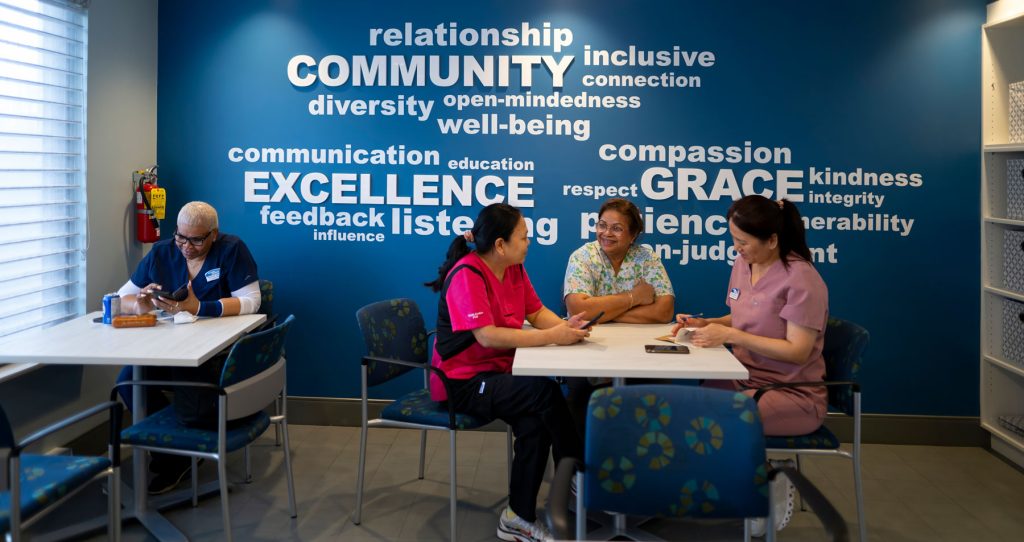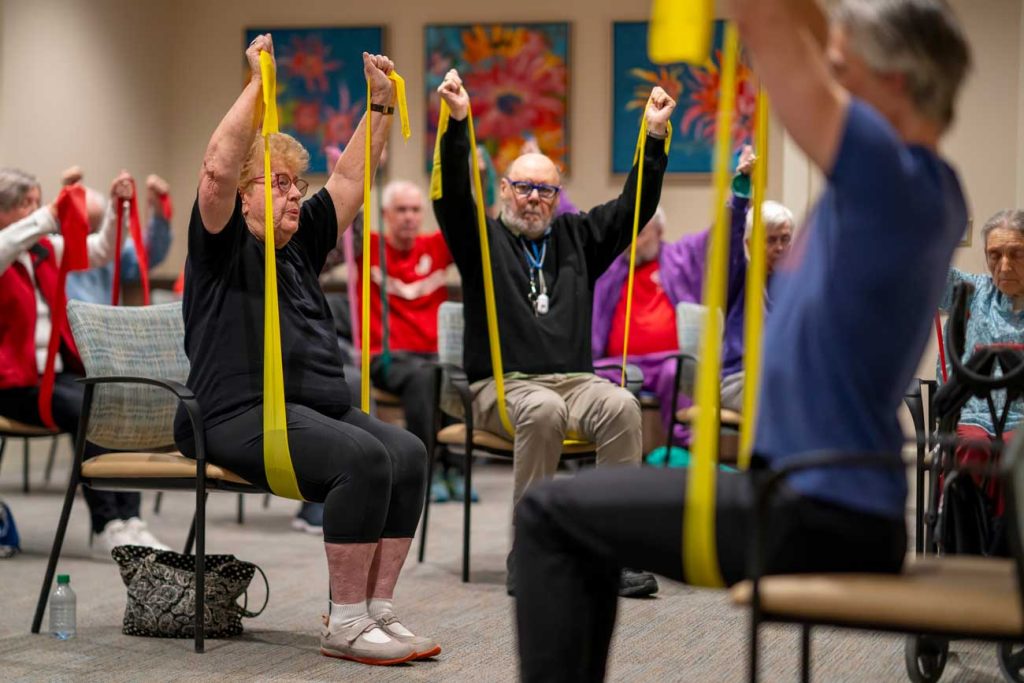With an ever-growing number of seniors and a system struggling to keep up, there is an urgent need to address the gaps in elder care training and infrastructure. One organization at the forefront of this effort is Christie Gardens, a retirement community that has embraced a unique approach to care—one that not only focuses on residents’ physical well-being but fosters a vibrant environment that promotes personal growth, independence, and dignity.
Christie Gardens is not just a place for seniors to live; it’s a community where residents can thrive. Many choose to join Christie Gardens not only for the care they need but for the sense of belonging and the opportunity to continue contributing to society in a meaningful way. With comprehensive programs for well-being, residents can age in place with dignity, supported by a team that prioritizes their emotional and social needs.
As a not-for-profit, Christie Gardens reinvests any surplus into the community and its innovative programs, including those overseen by its inhouse Christie Academy. Its aim is to tackle one of the biggest issues facing the elder care sector: the training and education of caregivers. The Christie Academy’s mission is to provide specialized training for Personal Support Workers (PSWs) and others in the elder care field, focusing on gerontology and dementia care. This training model, which incorporates the voices of seniors—many with lived experience of dementia—seeks to address the complex emotional and cognitive challenges that caregivers will face when working with seniors.

“We believe the elder care model must evolve to meet the growing demands of our aging population,” said Heather Janes, CEO of Christie Gardens. “We want to see our approach replicated across the country to improve standards and provide dignified care for all seniors, whether in a retirement home, long-term care facility, or even at home.”
Canada’s elder care system is currently facing three major issues: a lack of space, a shortage of staff, and insufficient training. The demand for long-term care homes far exceeds supply, with waiting lists growing longer and facilities overwhelmed. The aftermath of the COVID-19 pandemic has exacerbated these issues, leaving many healthcare workers feeling unsupported and underpaid. Furthermore, the training for PSWs is inconsistent, with a narrow focus on physical care, leaving many unprepared to manage the emotional and psychological aspects of working with seniors, particularly those with dementia or cognitive decline.
Personal Support Workers are among the hardest-working individuals in healthcare, yet their contributions are often undervalued. Many PSWs lack specialized training in key areas like palliative care and gerontology, areas that are crucial for providing quality care. The Christie Academy aims to fill this gap by offering a more comprehensive, elder-informed training model. This innovative approach involves seniors themselves in the learning process, ensuring that caregivers are better equipped to meet the real, day-to-day challenges of providing care.

Christie Gardens’ initiative goes beyond simply training caregivers—it aims to shape the future of elder care. In collaboration with the University of Toronto’s Health Studies Program, Christie Gardens has launched an intergenerational classroom program that pairs older adults with university students. Over the course of a semester, the students and seniors explore the fields of gerontology and geriatrics, gaining insights and field experience that will help shape future care policies and practices. This program not only bridges generational gaps but also transforms the way we think about aging, fostering greater empathy and understanding.
“By including seniors in the educational process, we’re not just teaching students about aging—we’re creating an environment where seniors feel valued and respected,” said Janes. “It’s about breaking down the stereotypes of aging and creating more meaningful connections between generations.”
Looking ahead, Christie Gardens plans to expand its collaborative efforts with other educational institutions and scale up the Christie Academy, seeking to gain Private Career College status, allowing it to establish a PSW school that will offer advanced training for personal support workers to address the growing caregiver shortage. The organization aspires to evolve from a single retirement community into a national hub for elder care innovation, where the voices of seniors guide care strategies that can improve the industry as a whole.

For Christie Gardens, this vision is personal. From 1984 to 2009, the organization was part of the long-term care (LTC) system, but as demand grew and the system became increasingly constrained, it became clear that the model was no longer sustainable. With long waiting lists, understaffed facilities, and financial pressures, Christie Gardens made the bold decision to leave the LTC system in 2009, sacrificing $3 million in annual funding to prioritize the well-being and dignity of its residents. The decision to move away from the traditional LTC model was a turning point, and today, Christie Gardens continues to be a leader in redefining what elder care can and should be.
Canada’s aging population deserves better, and it’s clear that improving elder care in Canada starts with improving education and training in the sector. The Christie Academy is taking the first steps toward this transformation. The hope is that other organizations across the country will follow suit, ultimately creating a more compassionate, effective, and sustainable elder care system for all Canadians.



